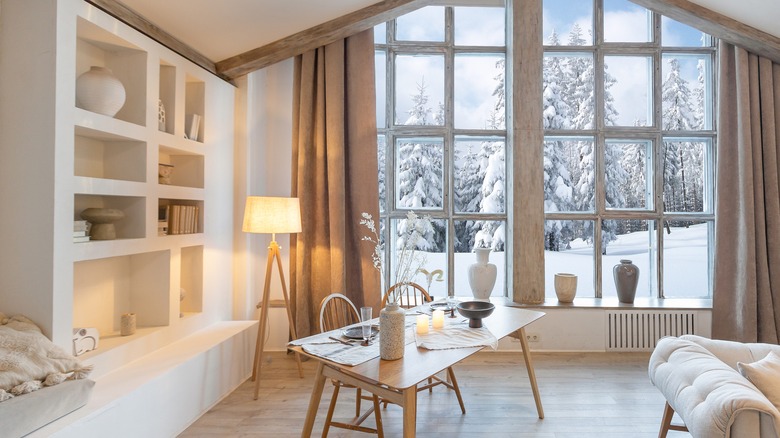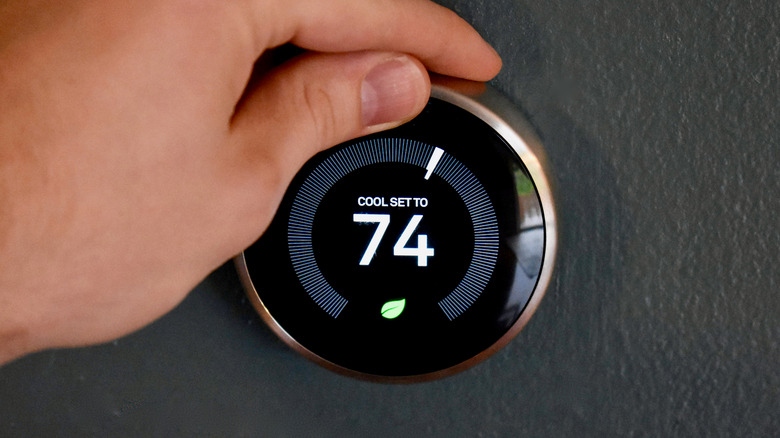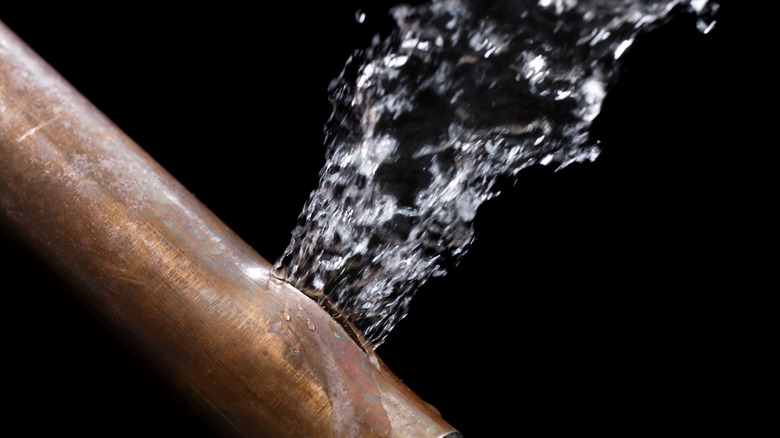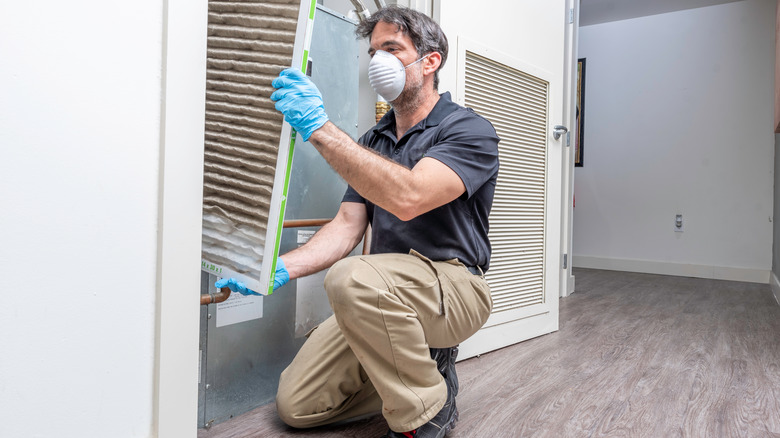4 Issues With Your New House That You May Not Know About Until Winter
Winter is coming is a quote that was popularized by the hit HBO show, Game of Thrones, but it may as well apply to homeowners who live in areas that get plenty of cold weather when winter finally rolls around. From things like frozen pipes to out-of-control heating bills, you haven't really lived in your new home until you've survived the first winter. Thus, whether you've just moved to a new house from across the country or across town, it's important to make sure your home is ready for a long, cold winter.
Unfortunately, no matter how well you prepare for winter weather, sometimes your home can surprise you. As such, you may find your fireplace to be far more dangerous than it is cozy, warns West Bend Mutual Insurance Company, and your HVAC system is long past its best. Thankfully, most potential disasters can be averted by planning ahead. So, even if your first winter in a new home is a harsh one, you're unlikely to make the same mistakes in years to come.
Outrageous heating bills
There are a number of reasons why your average heating bill may differ when moving to a new home. Naturally, some states are less expensive than others when it comes to the price of electricity and natural gas. Additionally, if the previous inhabitant of your home received discounted energy for one reason or another, you may be shocked when you receive your first utility bill. For this reason, it's advisable to contact your power company in advance so that you know what to expect and can take advantage of any discounts that are available to you.
Of course, the utility company isn't entirely in charge of how much you pay to keep your house warm. According to the AARP, even basic DIY weatherproofing can have a noticeable impact on your energy bills while preventing icy drafts from entering your home. So, if you notice certain windows or doors in your new home let in cold air, it's best to have those problem areas taken care of ASAP. You may also consider investing in a smart thermostat that's more eco-friendly than your home's existing unit. According to Energy Star, most certified smart thermostats can save homeowners around $50 per year versus less energy-efficient models.
Frozen pipes
Whether your home utilizes metal or plastic pipes, allowing water to freeze in them can be a costly mistake when temperatures suddenly drop. According to the American Red Cross, pipes that have little to no insulation are especially at risk of freezing, as are water supply pipes that are housed in unheated interior areas in your home. For this reason, maintaining a temperature well above freezing throughout your home is imperative, even if you plan on escaping town for a winter vacation to a much warmer destination,
Thankfully, there are a number of ways to weatherproof your home's pipes. For instance, insulating exposed pipes with foam insulation is an incredibly simple and effective method for DIYers to greatly reduce their risk of experiencing frozen pipes. Heat tape or heating cables can also be used on pipes that are extremely susceptible to freezing. According to State Farm, small actions such as opening your cabinet doors, repairing leaks, and winterizing outdoor water supplies can also help ensure you do not experience frozen pipes during the first winter at your new home.
A hazardous fireplace
Who doesn't like relaxing near a crackling fireplace on a frosty winter evening and soaking up some natural warmth with their favorite book or Netflix series? Unfortunately, if your home's previous owners didn't regularly clean the fireplace, then it might contain a great deal of creosote deposits. According to Priddy Chimney Sweeps, while creosote starts out as a thin, flaky layer in your chimney that's easy to clean out, it can quickly progress to a thick, tar-like consistency. When creosote becomes concentrated and tar-like, it can actually cause a serious chimney fire and should be ispected regularly.
Per Full Service Chimney, most standard home inspections don't include a thorough look at the chimney. As such, you may want to pay a professional to clean it out before it receives lots of use during the winter months. While budget-savvy homeowners may prefer to tackle the potential problem themselves with creosote-busting logs and telescoping chimney cleaning tools, most people choose to have experts clean their chimneys for optimal safety.
A faulty HVAC system
If your new home's HVAC system needs some work, you'll probably want to be aware of this before the snow starts blanketing your lawn. According to Service Champions, your home inspection probably didn't include a deep dive into your HVAC system, so unless you hired an HVAC specialist to take a look, you are at risk of running into issues when you push your HVAC system during the winter months. In fact, when your home's vents are covered in dust and debris, you can expect your monthly energy bills to rise since your system isn't able to operate at peak efficiency.
To make matters worse, straining an inefficient HVAC system during a demanding winter can cause several of its components to break down. According to National Heating and Air Conditioning, most seasonal breakdowns are caused by avoidable issues such as poor component health or airflow issues. Simply put, if you want your HVAC system to run flawlessly all winter (and beyond) having it inspected and cleaned ahead of time is never a bad idea.




